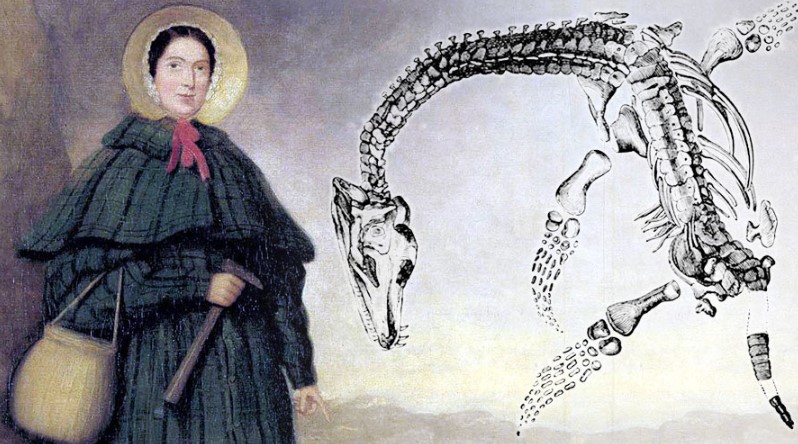
Francis Bacon
Introduction
Who Was Francis Bacon?
Francis Bacon, a name synonymous with the early modern period, was a multifaceted English philosopher, statesman, scientist, jurist, orator, and author. Born in 1561, Bacon’s work laid the groundwork for the modern scientific method. His contributions to philosophy, science, and literature are profound, making him one of the most influential figures of his time.
The Significance of Francis Bacon
Bacon’s significance lies in his revolutionary approach to science and his philosophical ideas that challenged the traditional scholasticism of the Middle Ages. He advocated for empirical research and inductive reasoning, which became the cornerstone of modern scientific inquiry.
Early Life and Education
Birth and Family Background
Francis Bacon was born on January 22, 1561, at York House in London. He was the youngest son of Sir Nicholas Bacon, the Lord Keeper of the Great Seal under Queen Elizabeth I, and his second wife, Anne Cooke Bacon, a learned woman renowned for her knowledge of classical languages.
Early Education
Bacon’s early education was rigorous and comprehensive, reflecting his family’s high academic standards. He was privately tutored before attending Trinity College, Cambridge, at the age of 12. There, he studied the medieval curriculum but soon grew disenchanted with the prevailing Aristotelian philosophy.
Influences During Youth
During his youth, Bacon was heavily influenced by his mother’s intellectual circle and the political environment of his father’s career. His time at the French court during his teenage years, under the patronage of the English ambassador, also exposed him to the dynamics of European politics and culture.
Political Career
Early Political Roles
Bacon’s political career began in earnest in 1584 when he entered the House of Commons. Despite initial struggles, his eloquence and intellect gradually earned him recognition. He served in various capacities, including as a member of Parliament for multiple constituencies.
Rise to Power
Bacon’s rise to power peaked when he was appointed Attorney General in 1613 and later as Lord Chancellor in 1618. His tenure was marked by significant legal and administrative reforms, although it was also plagued by controversies and accusations of corruption.
Downfall and Legacy in Politics
In 1621, Bacon was impeached for bribery and corruption, leading to his removal from office and a brief imprisonment. Despite this downfall, his political writings, particularly on legal reform and governance, continued to influence English politics and law.
Philosophical Contributions
Overview of Bacon’s Philosophy
Bacon’s philosophy revolved around the idea of empiricism and the belief that knowledge should be derived from sensory experiences. He vehemently opposed the blind acceptance of established doctrines without questioning or empirical testing.
The Baconian Method
The Baconian Method, also known as the scientific method, emphasized observation, experimentation, and inductive reasoning. Bacon argued that scientific inquiry should start with the collection of data and proceed with cautious generalization to build broader theories.
Empiricism and Its Impact
Bacon’s advocacy for empiricism marked a significant departure from the speculative philosophy of the time. His insistence on practical, observable, and repeatable experiments laid the groundwork for future scientific advancements and the overall scientific revolution.
Scientific Revolution
Bacon’s Role in the Scientific Revolution
Francis Bacon is often hailed as a pivotal figure in the scientific revolution. His work, particularly “Novum Organum,” challenged traditional scientific thought and introduced new methods of inquiry that focused on empirical evidence and systematic experimentation.
Key Works and Publications
Bacon’s notable works include “Novum Organum,” “The Advancement of Learning,” and “New Atlantis.” These publications collectively championed the reformation of scientific practice and laid out the framework for modern empirical research.
Influence on Modern Science
Bacon’s influence on modern science is immeasurable. His principles of inductive reasoning and the scientific method became the foundation upon which future scientists built their discoveries. Figures such as Isaac Newton and Robert Boyle were profoundly influenced by Bacon’s methodologies.
Literary Works
Notable Literary Contributions
In addition to his scientific and philosophical writings, Bacon was also a prolific essayist. His literary works encompass a wide range of topics, from politics and ethics to religion and society, showcasing his diverse intellectual interests.
Essays and Their Themes
Bacon’s essays, such as “Of Studies,” “Of Truth,” and “Of Revenge,” delve into various aspects of human nature and societal norms. They are celebrated for their concise, aphoristic style and insightful observations.
Influence on English Literature
Bacon’s literary contributions significantly impacted English literature. His essays, characterized by their brevity and depth, influenced the essay genre and were admired by contemporaries and later writers alike for their clarity and profundity.
Legal Reforms
Bacon as Attorney General and Lord Chancellor
As Attorney General and later Lord Chancellor, Bacon played a crucial role in shaping English law. His legal reforms aimed at improving the efficiency and fairness of the judicial system.
Contributions to English Law
Bacon’s legal philosophy emphasized the need for a systematic and empirical approach to law. He advocated for codification and the simplification of legal procedures, which had lasting impacts on the English legal system.
Legal Philosophy
Bacon’s legal philosophy intertwined with his empirical approach to science. He believed that laws should be grounded in rational principles and observed facts rather than arbitrary tradition or precedent.
Personal Life
Marriage and Family
Bacon married Alice Barnham, a wealthy heiress, in 1606. The marriage was strained and childless, reflecting the personal difficulties Bacon faced despite his public successes.
Personal Challenges and Controversies
Bacon’s life was marked by numerous challenges, including his financial troubles and the accusations of corruption that led to his political downfall. These controversies often overshadowed his intellectual achievements during his lifetime.
Relationship with Contemporaries
Bacon had complex relationships with his contemporaries, including his mentor and later rival, the Earl of Essex, and his cousin, Robert Cecil. These relationships significantly influenced his political career and personal life.
Death and Legacy
Circumstances of His Death
Francis Bacon died on April 9, 1626, of pneumonia. His death was reportedly the result of a scientific experiment involving the preservation of meat with snow, highlighting his lifelong commitment to empirical research.
Immediate Impact on Society
Bacon’s death marked the loss of a significant intellectual force. While his political career ended in disgrace, his contributions to science and philosophy quickly gained recognition and appreciation.
Long-term Legacy
Bacon’s long-term legacy is vast. He is remembered as the father of empiricism and a pioneer of the scientific method. His works continue to be studied and revered for their profound impact on science, philosophy, and literature.
Conclusion
Francis Bacon’s life was a tapestry of intellectual achievements, political ambitions, and personal struggles. His unwavering belief in the power of empirical research and his pioneering approach to science and philosophy have left an indelible mark on modern thought. Bacon’s legacy endures through the scientific methods and principles he championed, which continue to guide and inspire contemporary scientific inquiry.
FAQs
What Was Francis Bacon Known For?
Francis Bacon was known for his contributions to the development of the scientific method, his philosophical writings on empiricism, and his political career, including his roles as Attorney General and Lord Chancellor of England.
How Did Bacon Influence Modern Science?
Bacon influenced modern science by advocating for empirical research and inductive reasoning. His Baconian Method became the foundation of the scientific method, promoting systematic experimentation and observation.
What Are Some of Bacon’s Most Important Works?
Some of Bacon’s most important works include “Novum Organum,” “The Advancement of Learning,” and “New Atlantis.” These works collectively outline his scientific philosophy and vision for the future of human knowledge.
What Was the Baconian Method?
The Baconian Method, or scientific method, emphasizes the importance of empirical observation, experimentation, and inductive reasoning in scientific inquiry. It was a revolutionary approach that challenged the prevailing Aristotelian methods of the time.
How Is Francis Bacon Remembered Today?
Francis Bacon is remembered as a foundational figure in the scientific revolution, the father of empiricism, and a significant contributor to philosophy and literature. His methodologies and ideas continue to influence contemporary science and thought.


